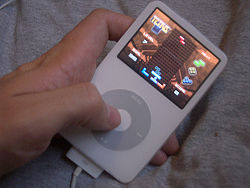Emily Jackson, a leading LSE Law professor, discusses the meaning of death and the moral and legal questions raised by euthanasia in the first of The Independent’s new series of short films.
Source: The Independent
January 2009
 The BBC reports on how playing the computer puzzle game Tetris can help reduce the effects of traumatic stress.
The BBC reports on how playing the computer puzzle game Tetris can help reduce the effects of traumatic stress.
Volunteers were exposed to distressing images, with some given the game to play 30 minutes later, the PLoS One journal reported.
Players had fewer “flashbacks”, perhaps because it helped disrupt the laying down of memories, said the scientists.
It is hoped the study could aid the development of new strategies for minimising the impact of trauma. Link to continue reading
Source: BBC
Emily A. Holmes, Ella L. James, Thomas Coode-Bate, Catherine Deeprose (2009). Can Playing the Computer Game “Tetris” Reduce the Build-Up of Flashbacks for Trauma? A Proposal from Cognitive Science. PLoS ONE, 4 (1) DOI: 10.1371/journal.pone.0004153 (open access).
Image Credit: Wikemedia Commons
 In relationships built on trust, a bad first impression can be harder to overcome than a betrayal that occurs after ties are established, a new study suggests.
In relationships built on trust, a bad first impression can be harder to overcome than a betrayal that occurs after ties are established, a new study suggests.
While betraying trust is never good for a relationship, the results show that early violations can be particularly devastating, and plant seeds of doubt that may never go away, said Robert Lount, co-author of the study and assistant professor of management and human resources at Ohio State University’s Fisher College of Business. [continue reading…]
 According to Australian risk and safety researchers Declan Patton and Andrew McIntosh from the University of New South Wales in Sydney, head-banging is pretty much guaranteed to give you brain damage if you’re not careful. To test their theory, the researchers went to a variety of metal and hard rock concerts (the best way to test any scientific theory) and observed the head-thrashing techniques used by artists. Link to continue reading
According to Australian risk and safety researchers Declan Patton and Andrew McIntosh from the University of New South Wales in Sydney, head-banging is pretty much guaranteed to give you brain damage if you’re not careful. To test their theory, the researchers went to a variety of metal and hard rock concerts (the best way to test any scientific theory) and observed the head-thrashing techniques used by artists. Link to continue reading
Source: Discover
Image: iStockphoto
